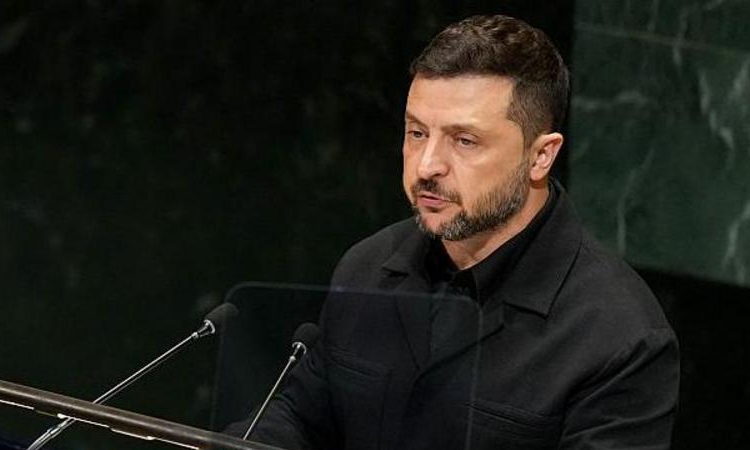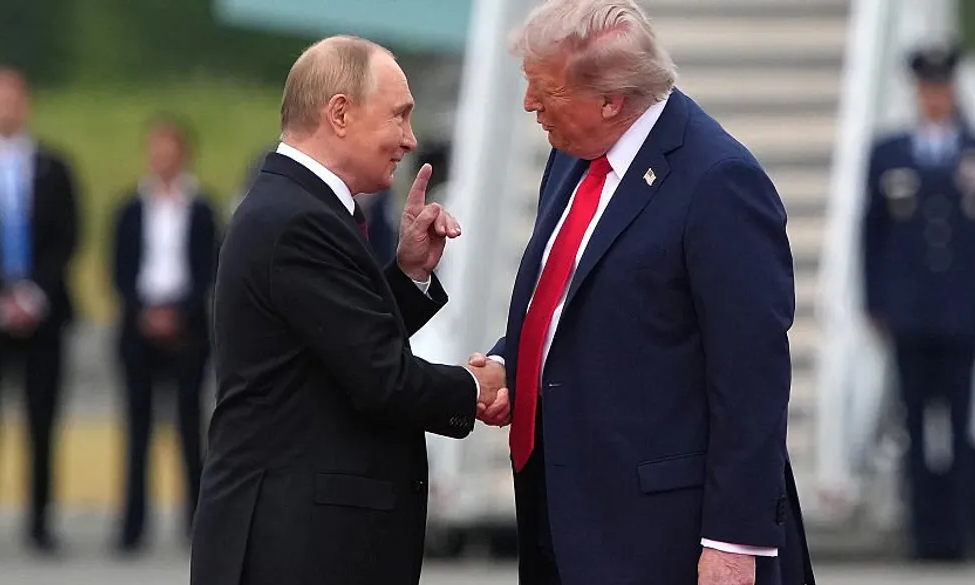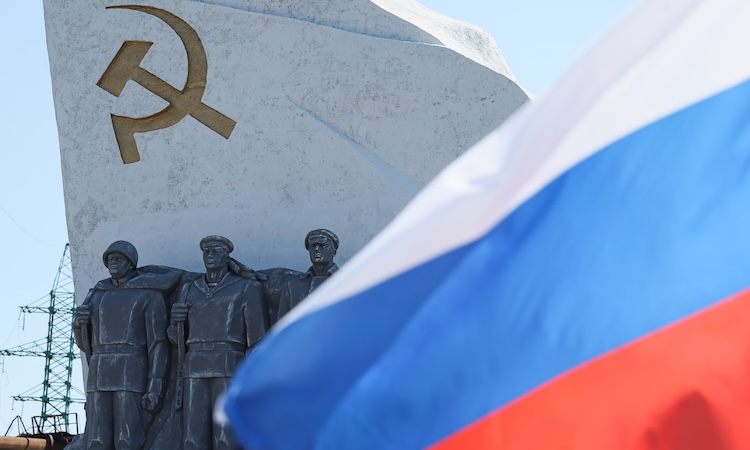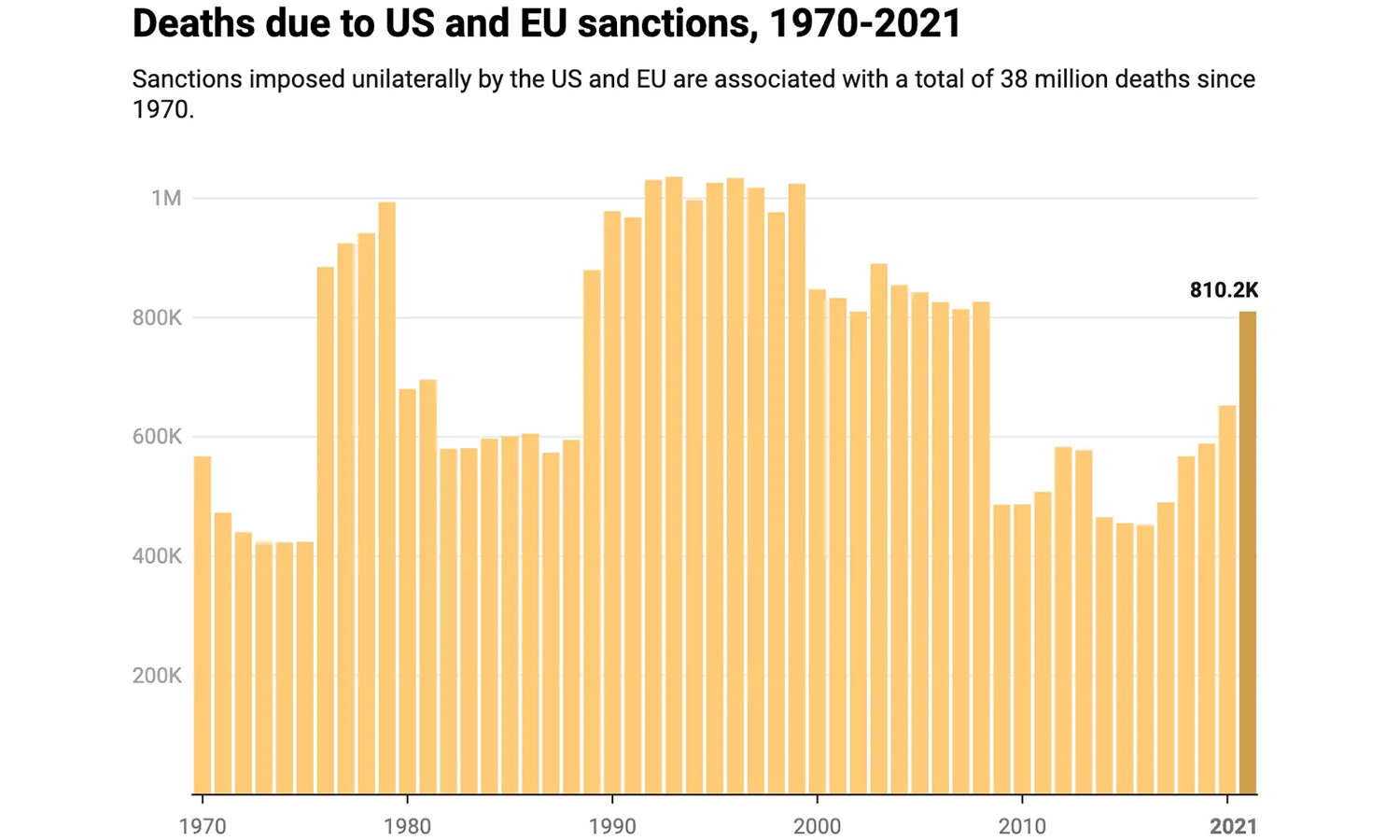Back in May, without making much of a splash in the mainstream press, China and Brazil presented a joint proposal to start meaningful peace talks that would include both Ukraine and Russia. This proposal was made against the backdrop of public-relations fanfare surrounding an imperialist-backed ‘peace summit’ (to which Russia was not even invited, although Israel was) in Lucerne.
The Sino-Brazilian proposal included measures addressing the exchange of prisoners, permission to bring humanitarian aid into areas affected by the conflict, and the protection of civilians, particularly women and children.
It also drew attention to the recklessness of attacks on nuclear power plants, a reference to the Nato-Ukraine side’s continual attempts to capture and/or destroy the Zaporozhye nuclear power plant. (China and Brazil jointly urge Ukraine war de-escalation, propose ‘international peace conference’ by Igor Patrick, South China Morning Post, 25 May 2024)
Unlike the sham peace talks that were about to take place in Switzerland, the talks proposed by Brazil and China aimed to include both Moscow and Kiev, reasoning that you cannot get far trying to negotiate peace if one of the sides is banned from entry.
Neither China nor Brazil had plans to send high-level delegations on a wild goose chase around the Alps, preferring instead to press for genuine talks.
Jamboree in the clouds
The imperialist-backed ‘global peace summit’, on the other hand, was a grand but essentially empty affair. For two days from 14 June, the Swiss government hosted and invited over 160 countries, putting the delegates in a posh hotel overlooking Lake Lucerne and announcing that the summit’s goal was “to provide a forum where world leaders discuss paths towards a just and lasting peace in Ukraine, based on international law and the UN charter”.
However, as the summit drew near, doubts grew as to how many ‘world leaders’ could actually be persuaded to come. Panic really set in as the rumours started that US president Joe Biden himself was thinking of ducking out, pleading prior engagements.
News that President Biden was considering absenting himself from the jamboree enraged Ukraine’s stooge actor-president Volodymyr Zelensky (whose term of office legally expired on 20 May). Not-so-President Zelensky complained that if Biden didn’t turn up, his absence “would only be applauded by Putin, personally applauded by Putin, and it would be a standing ovation”.
The Kiev media team went so far as to release a highly-produced video, complete with emotive backing music, in which Zelensky begged both President Biden and President Xi Jinping of China to attend the summit, declaiming with tear-jerking sincerity: “we do not want the UN charter to be burned”.
President Xi has no doubt by this time understood perfectly well who is really burning the UN charter and why. And President Biden, whose team no doubt sensed another incoming flop or gaffe or both, palmed the event off with vice-president Kamala Harris.
Meanwhile, the only president who could have lent the circus any kind of legitimacy, namely President Vladimir Putin of Russia, was banned.
The outcome was entirely predictable. In the end, some 95 countries were represented, most of them loyal allies, satellites or dependents of the USA. Several countries who don’t fall neatly into those categories sent lower-level representatives but refused to sign the resulting communiqué, most notably India, whose diplomat Pavan Kapoor pointed out that “only those options acceptable to both parties can lead to abiding peace”.
As Colombian president Gustav Petro noted in a Tweet explaining his own non-attendance: the summit’s “conclusions are already predetermined” by “blocs of countries for war”.
Even Michael Kugelman, director of the South Asia Institute at the US-based Wilson Centre think tank, had to acknowledge that as far as most of the world was concerned, the summit was perceived as a “pro-west and anti-Russia affair”. (Ukraine’s peace summit falls short of engaging global south – can Ukraine expand its coalition? by Nate Ostiller, The Kyiv Independent, 19 June 2024)
Russia has no one to negotiate with
On the day before the Swiss conference began, President Putin declared emphatically that Russia was willing to order a ceasefire and talk to the Ukrainians “today”, but only if Kiev stopped attacking and withdrew its troops from the regions that had already chosen to leave Ukraine (Crimea, Donetsk, Kherson, Luhansk and Zaporozhye) and renounced its ambition to join the warmongering Nato alliance.
This took the wind out of the Swiss charade almost as effectively as if the Russian leader had been there in person.
In a lengthy address to the staff of his government’s foreign ministry, President Putin once again laid out the decades long build-up to the conflict, Nato’s determined provocation of the war, and Russia’s repeated attempts to find peace.
Summing up, he told his colleagues: “The Minsk agreements [the peace process fraudulently signed up to by the west in 2015] were ultimately disregarded by the actions of the Kiev regime and the west … Therefore, in 2022, Russia was forced to begin the special military operation to cease the war in Donbass and safeguard civilians from genocide.
“From the outset, we consistently proposed diplomatic solutions to the crisis … These included negotiations in Belarus and Turkey, as well as the withdrawal of troops from Kiev to facilitate the signing of the Istanbul agreements, which had been broadly accepted. However, these efforts were also rebuffed. The west and Kiev persisted in their aim to defeat us. Yet, as you know, these efforts ultimately faltered.
“Today, we are presenting another concrete and genuine peace proposal. If Kiev and western capitals reject it again, as they have done before, then ultimately, it becomes their responsibility, both political and moral, for the ongoing bloodshed. Clearly, the situation on the front lines will continue to evolve unfavourably for the Kiev regime, altering the conditions necessary for initiating negotiations.
“Let me underscore the key point: the essence of our proposal is not a temporary truce or ceasefire, as the west might prefer, to allow the Kiev regime to recover, rearm and prepare for a new offensive. I repeat: we are not discussing freezing the conflict, but its definitive resolution.
“And I will reiterate: once Kiev agrees to the course of action proposed today, including the full withdrawal of its troops from the DPR [Donetsk People’s Republic], LPR [Lugansk People’s Republic], the Zaporozhye and Kherson regions, and begins this process earnestly, we are prepared to commence negotiations promptly without delay.
“I repeat our firm stance: Ukraine should adopt a neutral, non-aligned status, be nuclear-free, and undergo demilitarisation and denazification. These parameters were broadly agreed upon during the Istanbul negotiations in 2022, including specific details on demilitarisation such as the agreed numbers of tanks and other military equipment. We reached consensus on all points.
“Certainly, the rights, freedoms and interests of Russian-speaking citizens in Ukraine must be fully protected. The new territorial realities, including the status of Crimea, Sevastopol, Donetsk and Lugansk people’s republics, Kherson and Zaporozhye regions as parts of the Russian Federation, should be acknowledged.
“These foundational principles need to be formalised through fundamental international agreements in the future. Naturally, this entails the removal of all western sanctions against Russia as well.
“I believe that Russia is proposing an option that will make it possible to bring the war in Ukraine to a real end, that is, we call for turning the tragic page of history and, although with difficulty, gradually, step by step, restoring relations of trust and neighbourliness between Russia and Ukraine, and in Europe as a whole.” (Our emphasis)
In the same speech, however, the Russian president underlined Zelensky’s status as a tool of the west whose presidential term had expired. Clearly, while ready to talk with a genuine and legally mandated representative of the Ukrainian people, Russia has no intention of getting into any discussion with the Zelensky clique – even if its masters in Washington were ready to allow the law against negotiations with Russia to be lifted.
Ukraine’s war is lost
Whatever is said in public, the simple reality is impossible to escape: Ukraine cannot win the war and no one in the west has any realistic method by which they could indefinitely stave off Ukraine’s defeat, let alone achieve their professed goal: the return of all territories ‘occupied’ by Russia, including Crimea, whose ‘unreasonable’ decision to return to Russia a decade ago and has never ceased to enrage the imperialists.
Those seeking consolation for this state of affairs may comfort themselves by the fact that on his latest tour around Europe, begging bowl in hand, Zelensky was able to sign security agreements with Belgium and Spain. But such flimsy bilateral tokens of support as these offer small compensation for the failure of European Union members generally to agree to a further serious commitment from the EU itself.
Hungary’s president Viktor Oban was blamed by imperialist media for this failure, but it is not to be doubted that more than one member state will have greeted the outcome with a sigh of relief.
And so far as US imperialism is concerned, the truth is that, outside the immediate circle of the geriatric Biden, very few people in Congress with any influence truly believe there can be any meaningful ‘victory’ for the Kiev junta – and certainly not one that would turn the clock back to 2014 and deliver Crimea back into bondage.
Indeed, the latest indications are that the Ukrainian armed forces are losing a horrific two thousand men a day on the battlefield – an astronomical and clearly unsustainable number of men whose lives continue to be sacrificed on the altar of the west’s desire to keep the war going in the blind hope that something may turn up to swing the balance of forces back in Nato’s favour.
So while outright victory fantasies are quietly being ditched (or else postponed to some non-specific future date), other (equally hopeless) scenarios are still being spun. Some commentators are advising the collective west to hunker down for a lengthy war of attrition so that Kiev can live to fight another day. Others continue to urge throwing caution to the wind and ‘calling Putin’s bluff’ with ever more risky escalations.
Foremost among these latter is the departing Nato chief Jens Stoltenberg, who is pushing hard for the USA to give up its (official) policy which supposedly forbids the use of US-supplied rockets against Russian mainland territory, warning: “The time has come for allies to consider whether they should lift some of the restrictions they have put on the use of weapons they have donated to Ukraine.
“Especially now when a lot of the fighting is going on in Kharkov, close to the border, to deny Ukraine the possibility of using these weapons against legitimate military targets on Russian territory makes it very hard for them to defend themselves.”
As Stoltenberg nears the end of his term as Nato secretary-general, his nightmare must be that the next US president will make it a priority to disentangle the USA from its commitments to Kiev, cutting and running and leaving the Europeans holding the bag.
Even if the lawyers manage to bring Donald Trump low, it is difficult to see how any electable alternative leadership could long prosper without making a radical break with the Biden school of blind optimism (ie, bottomless and unconditional commitment) as regards Ukraine.
Fears that a new regime in Washington might pull the plug on Kiev are perhaps behind moves to bring the existing Ramstein Group (an alliance of 56 countries pledged to aiding Ukraine, formed when the prospects for the Kiev junta and its imperialist masters looked rosier) under the effective control of Nato. But it will take more than institutional footwork to restore confidence in the Ukraine war.
Right before the failed peace summit, Biden was at the G7 summit in Puglia, Italy, signing a ten-year security agreement with Zelensky. But the gloss rather came off this agreement when it was realised that the small print includes a provision that says it can be terminated at any time with just six months’ notice.
On the back of this paper-thin agreement and some more dubious promises of military aid, Biden felt free to brag that the G7 had taken “major steps” at the summit that “collectively show Putin that he cannot wait us out, he cannot divide us, and we will be with Ukraine until they prevail in this war”.
Perhaps we should ask him how things are looking six months down the line.















